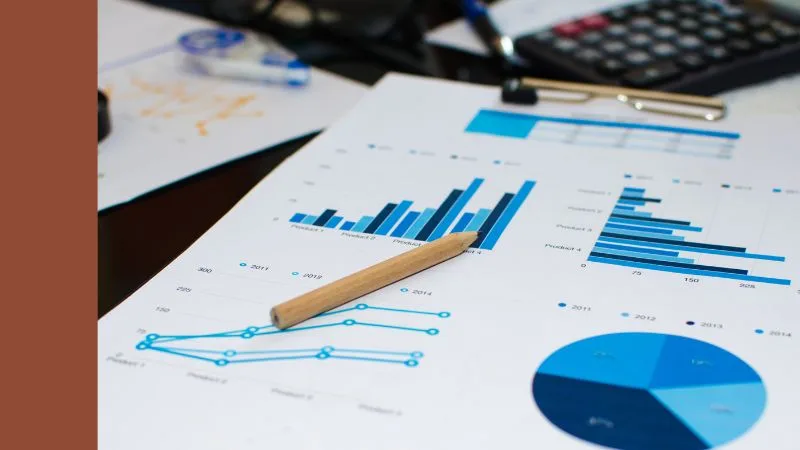Yesterday, I answered why people would pay for a service where someone else invests in ETFs on their behalf. The second question that is asked occasionally by that same group of people is why do we always talk about active investing?
I think this is a much more interesting question.
The passive vs active debate
The older I get the more I realise the world is not black and white and the interesting bits sit in the grey area. I think breaking something as complex as investing down to one single ‘this vs that’ is lazy.
I must point out, 80% or more of our Rask Invest portfolios are passive ETFs. It’s important to state this as we do believe, in a lot of cases, passive ETFs are incredibly efficient and hard to beat, especially when it comes to large cap equities.
For those who have come to investing in the last ten years, there is every chance you have been educated by the ETF issuers. They’re big organisations with big marketing budgets and they are dwarfing the marketing teams of smaller active managers. They are excellent at getting their messages out there.
You can also probably point towards reports like the S&P SPIVA report showing that, on the whole, active managers underperform the industry standard benchmarks over whatever period you want to measure them. This is true. But let’s not forget, these organisations work hand in hand with big ETF. Don’t get me wrong, there’s a lot of active managers who do not add any value.
Why do we refer to active all the time then?
Let’s put this one straight up the top, the Australian Investors Podcast would have finished at episode twelve if all we did was talk about passive investing. It would be like Morgan Housel’s non existent book called “Shut up and Wait” where on every page is a chart of the S&P 500. But there are legitimate reasons for focusing on active:
- Stock price movement sets the price of the ETF Why did my Aussie index fund go down 1% today? Understanding these movements can help to a calmer reaction, longer term holding and a better investment outcome.
- Active managers set the prices ETFs are price takers, they do not set the prices. Therefore, active managers who are analysing, out meeting with management teams, analysing the competitive environment and valuing businesses set the prices. I was at a seminar the other week where the presenter went as far as to say, passive ETFs are freeloading off the price discovery work of active managers. He meant ETF issuers do not have to invest in teams of analysts to do all of the above, they simply take the price attributed by active managers. And without the need to employ expensive analysts they can have lower fees. Speaking of how expensive analysts are, I interviewed a global small cap fund manager for the podcast last week. They travel a lot and even take their families and live for a month or two at a time to really get to know companies in their local environment. That’s expensive!
- Inefficient markets exist and active managers can add value in them If we want to look back at those SPIVA reports people like to quote, two categories in particular stand out where active managers have a greater chance of outperformance. They are small caps and bonds. These two areas, this includes Australian and global smalls, are far more inefficient than large cap equities. The greater the inefficiencies the better the opportunity for active managers.
- Investing is about risk adjusted returns We don’t just pile into US equities because it has been the highest returning asset class. We build diversified portfolios to deal with volatility and sequencing risk. Think of the investors who would value a less volatile ride, they may even be satisfied with a lower return than the market for lower volatility. Not everyone has 20 – 30 years of investing ahead of them. What is an appropriate return? The one you need, especially if you are no longer earning a wage. If you need a 6% total return to have a great retirement, who cares if the market does 9. Accepting the long-term market return you accept the ride.
- The rewards are there if you can do it It is incredibly financially rewarding to try, life changing even. $100K compounded at 8%pa over 20 years is just a shade over $466K. $100k compounded at 10%pa over 20 years is $672K.
- Finally…it’s fun! We all read books about Buffett and Lynch, we read articles about game changing AI, we think about the future, we want to support innovative Australian companies because it is fun. If you are curious about how the world works and how people work you will absolutely love the challenge of investing. It’s the study of people, psychology (your own and others), incentives, business models, competition, economics all in one. And even if you are a pure passive investor, you can still enjoy the mental stimulation.
You don’t have to bet the farm on active management. You don’t have to be 100% passive either. Find what works for you and let others do what works for them. The main thing is, you find an investment approach that you can stick with. Because one thing is for sure, active or passive if you are jumping in and out of the market with every bit of volatility will destroy wealth far quicker than a high management fee.
If you’d like to know what active strategies we choose to blend with our passive you can get in touch with me via the chat in the bottom right, jump across to the Rask Community or jump across to the Rask Invest site too. Catch you tomorrow.









